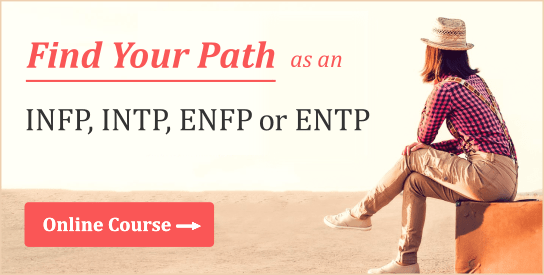
“Type envy” is an age-old and universal phenomenon, referencing our tendency to envy or admire other personality types. Despite its ubiquity, surprisingly little ink has been spilled on this topic to date.
There are certain personality types that, especially when healthy, tend to garner the attention and admiration of others. Research on the Big Five taxonomy suggests, for instance, that those scoring high in extraversion, openness, agreeableness, and conscientiousness (ENFJ in Myers-Briggs parlance) are more apt to be happy, well-liked, good leaders, and gainfully employed. Consequently, most of us appreciate (and perhaps even envy) well-developed ENFJs.
As wonderful as ENFJs can be, the larger truth is that any type can inspire the envy or admiration of others, depending on the personality and circumstances of the beholder. We might even envy individuals of our own type, particularly those who are successful or self-actualized. For example, I’ve long admired other INTPs such as Kant, Einstein, and Bill Gates.
We may also find ourselves intrigued by our typological opposite, that is, by individuals who embody our type’s shadow or inferior function. This lends credence to the popular notion that “opposites attract,” which, as we will soon discuss, is an everyday occurrence among introverts and extraverts.
One factor determining the types we envy or are drawn to is the personality functions we are emphasizing or developing at a given time. For instance, if we are scoping out role models for our dominant function, we might focus our attention on individuals of a similar type. If preoccupied with our inferior function, however, we’ll devote more attention to our typological opposites. There’s also a middle category, which incorporates some measure of type similarity and difference. Employing this approach, an INFP aiming to develop her auxiliary N and inferior T functions might turn to a type such as ENTP for inspiration.
Introverts (I) & Extraverts (E): Points of Envy & Attraction
As implied in my earlier comments about ENFJs, there’s a lot to like (or envy) about extraverts. Extraverts can have a “larger than life” quality about them. Their confidence, optimism, and charisma can be truly magnetic, capable of energizing and catalyzing an entire group. Natural leaders, extraverts supply the enthusiasm and vision required to inspire teamwork and cooperation.
What is sometimes dubbed “the power of positive thinking” is a reliable factor in extraverts’ success. When optimism teams up with self-confidence, even individuals with less knowledge or experience can rise to positions of power through sheer will and determination. Indeed, no small number of extraverts have employed the “fake it ‘til you make it” approach with good results.
Extraverts also have the gift of resilience. Their grit, toughness and optimism allow them to overcome obstacles and maintain their composure, even under high loads of stress and responsibility.
Introverts are in many respects the opposite. They tend to be more realistic (even pessimistic), more self-conscious (and thus less outwardly confident), and less enthusiastic. If extraverts overestimate and inflate their abilities, introverts underestimate and downplay theirs (INTJs may be an exception). With regard to impostor syndrome, it might be said that extraverts are more open to functioning as impostors (e.g., feigning expertise) but won’t admit it, while introverts are disposed to feel like impostors even when they aren’t.
Socially, introverts are rarely magnetic (excepting some INFJs), at least not in the sense of commanding the attention of a room. Thus, it’s often extraverts’ social acumen and energy that introverts are most drawn to. Without an extravert around, awkward silences and social lethargy are perpetual threats. Hence, it’s fair to say that extraverts can play a valuable role in social situations of all sorts. On many occasions, introverts turn to extraverts seeking a source of positive energy, social support, or perhaps merely some fun and entertainment.
In light of introverts’ propensity for self-deprecation, they may be truly surprised when an extravert takes time to express interest in them (e.g., “Wait, out of everyone here, you want to talk to me?”). Most introverts know they’re not the life of the party. Indeed, many will go out of their way to steer clear of the spotlight. It’s therefore natural for introverts to assume that nobody will notice them, let alone see them as somehow intriguing or special.
Nevertheless, it happens. In fact, it happens all the time. Extraverts frequently, even if unwittingly, take a keen interest in introverts. Of all the personality preferences, E-I pairings are among the most predictable, comprising up to two-thirds of all relationships.
But why? Why would a gregarious extravert be drawn to a quiet, soft-spoken introvert? Is it because there’s only enough air in the room for one extravert? Is it because extraverts need a listening ear or simply want someone to admire them?
While there may be some truth to all these notions, it’s also the case that introverts—whether they believe it or not—have qualities that extraverts envy or are captivated by.
Among these is the aura of mystery that surrounds the introvert: “What’s going on in her mind right now? How is she so self-contented? Does she know something important about optimal living that I don’t? I want to know more…”
Of course, for introverts, who they are inwardly is not terribly mysterious. However great their inner world may be, it’s more familiar than it is mysterious. But to the outwardly-focused extravert, the self-contained introvert is invariably intriguing.
Extraverts may also envy introverts’ capacity for self-sufficiency and self-rootedness. The capacity to be alone with one’s own thoughts and even more—to enjoy doing so—is less natural in extraverts (especially extraverted sensors). For many extraverts, it’s easier to think or feel out loud (or listen to others do so, e.g., on television) than it is to sit quietly with their thoughts or feelings. So while introverts may not understand or acknowledge it, extraverts actually want what they have just as much as introverts aspire to develop certain extraverted attributes.
Finally, extraverts may admire introverts’ ability to specialize or achieve expertise. Generally speaking, extraverts excel at knowing a little about everything. Introverts, by contrast, may end up focusing more on one thing, putting more of their proverbial eggs in a single basket. Although there are certainly advantages to both approaches, extraverts may envy the introvert’s capacity for intensive focus, as well as the depth of competence and understanding that comes with it.
To learn more about your personality, life purpose, relationships, career path and more, be sure to explore our online course, Finding Your Path as an INFP, INTP, ENFP or ENTP.
Related Posts:
Type & Relationships: The Roles We Play (& Why)
Anxiety & Self-Awareness: How Introverts & Extraverts Differ
Personality & Beliefs: Optimism, Realism, Extraversion & Introversion

aman singh says
hi A.J.
I really like your articles, appreciate what your doing. You mentioned the big five in this article, I was wondering what you thought about it . I first came across that through Jordan Peterson’s work, who really likes and promotes the big five, but isn’t a fan of Myers-briggs. Do you feel one is better then the other or both are worth equally considering?
also, as an INFP, what tips/suggestions can you give on how to improve some of the challenges/weaknesses mentioned in this article, such as impostor syndrome or social awkwardness? Thanks.
lilian says
so interesting indeed its very true.
i am an introvert and whatever is said is perfectly correct thanks for this awareness.
Leslie Barnes says
I love this information. Thank you for helping me understand my personality and diving deeper into the research. Your analysis is just what the field needs to make understanding of these traits and preferences serve us in everyday life.
Michael Wickham says
I’m an INTP with ISTP envy. The Ti/Fe polarity is too engrained In me to even think about changing it. There are times, however, I wish I could change the Ne/Si to Se/Ni. During those times, I have an infatuated admiration for those of a more ISTP persuasion.
CLAUDIA PENNA says
A.J., every article is so very helpful and interesting! I especially love your usage of colorful words and phrases, “Despite its ubiquity, surprisingly little ink has been spilled on this topic to date.” And I agree with Leslie Barnes – “Your analysis is just what the field needs to make understanding of these traits and preferences serve us in everyday life”.
Meg says
Well, I have definitely been an extrovert my entire life (ENTJ-A) and I don’t really find most of these to be true, at least for myself. So, I asked my long term boyfriend what he thought (ENFJ-A) and he’s in agreement with me, no most of these sound kind of far fetched. I don’t know that I envy introverts at all, to be honest. While I appreciate many things about them and find them to be a good counter balance for me, I certainly don’t envy them. I actually do LOVE introverts, but not for any of these reasons. I often just get exhausted by extroverts. I like them for entertainment purposes, they’re always a good time. But if I want to get to know someone on a deeper level, introverts are easier to get there with. I think a lot of this also depends on our percentage of extrovertedness. I am lower in my percentage, so I often identify with the introvert. My job can be emotionally draining, always feeling the need to entertain my clients… so that leaves me really craving intellectual stimulation from those closest to me, which I most often get from introverts. I prefer one on one, deep conversations, I don’t prefer small talk, I like people that can teach me. INTJs and INFJs have been my favorite types, thus far. INTJs are fascinating and stimulating and I like to debate with them for hours. INFJs feel safe and warm and understanding. Conversely, the introverts that I know are also drawn to me, stating many of the same points you made. So, maybe my boyfriend and I are just oddballs, but I tend to think the extroverts I know envy very little about introverts as they’re all quite happy with themselves, lol